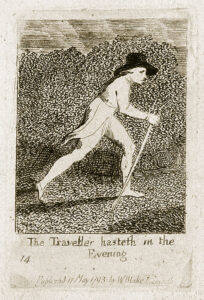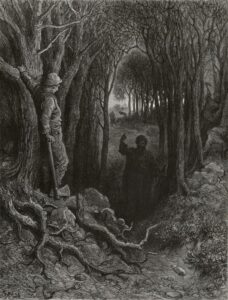
Part 2 MARK STATMAN: MEXICO AND THE POETRY OF GRIEF AND CELEBRATION
Part 2 of my interview with Mark Statman looks closely at Mark’s Latin American poetic influences, his life in Mexico and ends with an extract


My poem Visit, highly commended in the Brian Dempsey Memorial Competition, 2017.
VISIT
My mother’s in the kitchen as we knock and enter.
We’re expected. Except for the kisses and silk-grey hairdo,
she’s unchanged. Her dewlap cheeks are warm.
After passing through health checks, teabag squeezings
and the week in headlines, we occupy the lounge.
Inviting us to sit, she hunts out coasters.
Our talk begins again. Inside its structure
– tape loop or formula – I’m invisible,
standing at the window, observing the small boy
with shadow self and hideouts, surrounded by branches
on the wrong side of the shed.
Or jumpy on the beach,
crowding the camera in shorts and sandals
with background wheel and dog.
She’s present tense. There are briefings, shopping trips,
reminders, exchanges with my partner
and updates on sale price and improvements for the house.
I nod and question, while the picture widens,
taking in the photos of groups on sunlit lawns,
hands on glasses and cars driving off
and the all-white faces when the shutter sticks.
My first, while cornering, legs together
pressed on leather, ridge-marked to a rash.
Backseat in the Austin, I knew I was stuck;
one false move and the flesh might tear.
Hitting a pothole, the camera flashed
on a door swung back, air scooped out
and darkness spinning like vinyl.
Everything stopped with the talk-shouts that followed.
Or remained in outline, a moment in waiting,
imagined often when trying not to look.
What the eye doesn’t see.
Next in the glare, running the lawn,
bared to a grin, with trunks and mud splats
in a blown-up pool. And the dream-shots later
of shoulders peeling in low-cut suntops,
eyeing the wasps crawling through jam.

Then off-cuts held up: the frost-palms and ferns
caked on glass, the black brass weights
held in the balance by Fairy-soft hands,
the sewing attachments tangled in a drawer,
the skin flaps, nail splits and door-trapped fingers.
Don’t look now.
Finally in the dark: the slide around the corner
and catch in the breath as the boy jumps sleep
to stand peering out through flesh-wrapped curtains
dream-lost and floaty in deep cold water.
And now we’re standing, talking by the door.
There are items to pick up, smiles and promises,
timings, and next week’s visit.
When we leave, it’s late.
On our journey home, the headlights cut a line.
We follow back the thread.
Inside the beam, bordered by darkness, the road runs forward.
Outside that, we’re surrounded by things we can’t see.
Leslie Tate
Visit is about living simultaneously in two worlds: the materialist, routine view of life that sees everything in ‘common sense’ terms, and the childhood lightbulb moments that connect us to our deeper, imaginative selves. One world is fixed, conventional and reductive, the other is dynamic, finding risk, intensity and strangeness in everything. Self-understanding involves seeing both.
ABOUT LESLIE TATE’S BOOKS:

Part 2 of my interview with Mark Statman looks closely at Mark’s Latin American poetic influences, his life in Mexico and ends with an extract

I interviewed international poet and translator Mark Statman about Volverse/Volver, his 14th published collection. Mark, who has won national arts awards, is Emeritus Professor of Literary

I interviewed Lisa Dart, finalist in the Grolier, Aesthetica and Troubadour Poetry Prizes and author of The Linguistics of Light (poems, Salt, 2008), Fathom (prose

I interviewed writer Julia Lee Barclay-Morton about her experience of autism. Julia began as an experimental dramatist in New York, moving to the UK to

I interviewed Gillean McDougall from Glasgow, who edited the collaborative projects Honest Error (on Charles Rennie Mackintosh and his wife Margaret Macdonald) and Writing the
| Cookie | Duration | Description |
|---|---|---|
| cookielawinfo-checkbox-analytics | 11 months | This cookie is set by GDPR Cookie Consent plugin. The cookie is used to store the user consent for the cookies in the category "Analytics". |
| cookielawinfo-checkbox-functional | 11 months | The cookie is set by GDPR cookie consent to record the user consent for the cookies in the category "Functional". |
| cookielawinfo-checkbox-necessary | 11 months | This cookie is set by GDPR Cookie Consent plugin. The cookies is used to store the user consent for the cookies in the category "Necessary". |
| cookielawinfo-checkbox-others | 11 months | This cookie is set by GDPR Cookie Consent plugin. The cookie is used to store the user consent for the cookies in the category "Other. |
| cookielawinfo-checkbox-performance | 11 months | This cookie is set by GDPR Cookie Consent plugin. The cookie is used to store the user consent for the cookies in the category "Performance". |
| viewed_cookie_policy | 11 months | The cookie is set by the GDPR Cookie Consent plugin and is used to store whether or not user has consented to the use of cookies. It does not store any personal data. |
4 responses
Congratulations, Leslie! I really enjoyed reading your poem. I have your book, Head and Heart, which I’ve been enjoying too.
Oh, thank you so much, Kendra! I find each attempt a learning experience where I’m trying to say something that builds towards something fuller and more rounded the next time. Please copy me in/tag me with what you’re writing…
A great poem, Leslie. I read it twice. Once before I read your explanatory write up and once after. Both reads were good but your explanation was a nice touch.
Thank you so much, Robbie for reading it so closely! The last stanza points to a different theme, one that has been growing through the imagery of the poem. So the ending suggests it’s not so much about understanding the literalist vs imaginative approach, but that life’s about something hidden we can sense but not directly name…